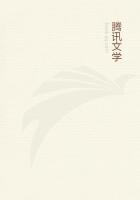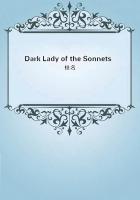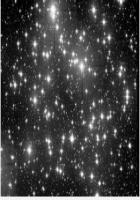There are two distinctive peculiarities by reference to which we characterize the soul (1) local movement and (2) thinking, discriminating, and perceiving. Thinking both speculative and practical is regarded as akin to a form of perceiving; for in the one as well as the other the soul discriminates and is cognizant of something which is. Indeed the ancients go so far as to identify thinking and perceiving; e.g. Empedocles says 'For 'tis in respect of what is present that man's wit is increased', and again 'Whence it befalls them from time to time to think diverse thoughts', and Homer's phrase 'For suchlike is man's mind' means the same. They all look upon thinking as a bodily process like perceiving, and hold that like is known as well as perceived by like, as I explained at the beginning of our discussion. Yet they ought at the same time to have accounted for error also; for it is more intimately connected with animal existence and the soul continues longer in the state of error than in that of truth. They cannot escape the dilemma: either (1) whatever seems is true (and there are some who accept this) or (2) error is contact with the unlike; for that is the opposite of the knowing of like by like.
But it is a received principle that error as well as knowledge in respect to contraries is one and the same.
That perceiving and practical thinking are not identical is therefore obvious; for the former is universal in the animal world, the latter is found in only a small division of it. Further, speculative thinking is also distinct from perceiving-I mean that in which we find rightness and wrongness-rightness in prudence, knowledge, true opinion, wrongness in their opposites; for perception of the special objects of sense is always free from error, and is found in all animals, while it is possible to think falsely as well as truly, and thought is found only where there is discourse of reason as well as sensibility. For imagination is different from either perceiving or discursive thinking, though it is not found without sensation, or judgement without it. That this activity is not the same kind of thinking as judgement is obvious. For imagining lies within our own power whenever we wish (e.g. we can call up a picture, as in the practice of mnemonics by the use of mental images), but in forming opinions we are not free: we cannot escape the alternative of falsehood or truth. Further, when we think something to be fearful or threatening, emotion is immediately produced, and so too with what is encouraging; but when we merely imagine we remain as unaffected as persons who are looking at a painting of some dreadful or encouraging scene. Again within the field of judgement itself we find varieties, knowledge, opinion, prudence, and their opposites; of the differences between these I must speak elsewhere.
Thinking is different from perceiving and is held to be in part imagination, in part judgement: we must therefore first mark off the sphere of imagination and then speak of judgement. If then imagination is that in virtue of which an image arises for us, excluding metaphorical uses of the term, is it a single faculty or disposition relative to images, in virtue of which we discriminate and are either in error or not? The faculties in virtue of which we do this are sense, opinion, science, intelligence.
That imagination is not sense is clear from the following considerations: Sense is either a faculty or an activity, e.g. sight or seeing: imagination takes place in the absence of both, as e.g. in dreams. (Again, sense is always present, imagination not. If actual imagination and actual sensation were the same, imagination would be found in all the brutes: this is held not to be the case; e.g. it is not found in ants or bees or grubs. (Again, sensations are always true, imaginations are for the most part false. (Once more, even in ordinary speech, we do not, when sense functions precisely with regard to its object, say that we imagine it to be a man, but rather when there is some failure of accuracy in its exercise. And as we were saying before, visions appear to us even when our eyes are shut.

